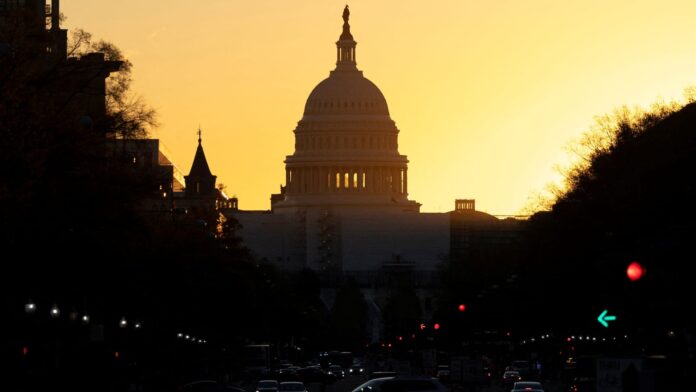The U.S. midterm elections appear likely to result in narrow divisions in both houses of Congress, which could be a boost for the old and new energy sectors alike. Energy has been a key political topic this year, with soaring oil prices leading to discussions about how to boost U.S. energy production. According to a note from Goldman Sachs’ economic research team, Tuesday’s elections could mean that policy status quo remains intact for the next two years. “Sector-focused policy changes would be even more limited under a divided Congress than under Republican control. Changes to energy or health policy—such as rolling back changes made in this year’s Inflation Reduction Act (IRA)—did not appear very likely under a Republican Congress and appear even less likely if control of Congress is split,” the Goldman note said. “For regulatory issues the difference between a Republican-majority and divided Congress is limited, as 60 votes are typically necessary in the Senate for regulatory (or any other non-fiscal) legislation and would have been elusive on most issues regardless of which party holds the Senate majority,” the note said. That could be good news for the clean energy policies pushed in the Inflation Reduction Act, which included several provisions to boost green energy that some Republicans opposed. On Wednesday, the Invesco Solar ETF (TAN) rose about 0.7%, while the iShares Global Clean Energy ETF (ICLN) ticked lower by 0.4%. The election results could also be good news for permitting reform, where more Republican votes in the House could help boost a priority for Sen. Joe Manchin, D-W.Va. Some progressive lawmakers had resisted the idea, which could ease the process for approving new oil pipelines and green energy projects. Raymond James analyst Ed Mills said in a note to clients on Wednesday that the issue could be taken up during the lame-duck period. Pipeline funds Tortoise North American Pipeline fund (TPYP) and Global X MPL & Energy Infrastructure ETF (MLPX) were outperforming traditional energy funds on Wednesday, but still lower as oil prices declined. Republican control of either chamber of Congress would also make the excess profits tax floated by President Joe Biden even more unlikely, removing a potential headwind for oil stocks. To be sure, a divided Washington could be bad news for the energy sector if the U.S. economy falls into a recession. Economic weakness in China is already weighing on oil prices, and a divided U.S. government will be less likely to stimulate demand in America, especially given high inflation. “A legislative response to a potential recession would also be more difficult, we believe, as the House and Senate would likely pursue different approaches and the odds of gridlock would be somewhat higher than if Republicans controlled both chambers,” the Goldman note said.
© heardonwallstreet.com


